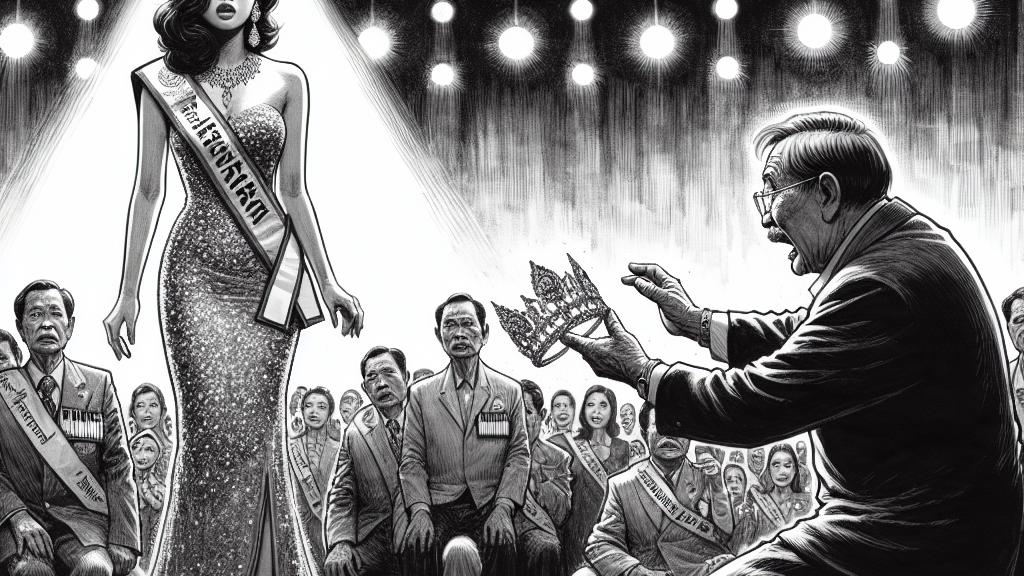Controversy Surrounds Miss Grand International Pageant and Myanmar's National Director
Overview
- A dramatic and messy incident at the Miss Grand International pageant ignites outrage in Myanmar.
- Thae Su Nyein confidently refuses her second runner-up title following a shocking tiara removal.
- The pageant's president enforces a lifetime ban on Myanmar's national director amidst allegations of misconduct.

The Stunning Incident and Immediate Fallout
In a notable chapter of beauty pageant history, the Miss Grand International pageant recently held in the lively city of Bangkok, Thailand, descended into chaos when Myanmar’s contestant, Thae Su Nyein, found herself in a jaw-dropping predicament. As the excitement swirled in the air, Lwin, her national director, unexpectedly snatched away her beautiful tiara and sash, stripping her of the recognition she had just earned. This dramatic scene unfolded in front of the audience, shocking many and leading Thae to publicly renounce her second runner-up title. She expressed her deep disappointment through social media, asserting that she aimed for higher honors to uplift her country’s spirit. In swift retaliation, the pageant's organizers promptly banned Lwin for life, denouncing his unprofessional conduct and blatant disrespect to the competition’s integrity, which left many questioning the true spirit of beauty pageants.
A Reflection of Political Struggles and Societal Divisions
This unfolding drama not only captured attention but also illuminated the political climate in Myanmar, where citizens grapple with profound challenges posed by military governance. The incident sparked intense debates online, with people divided on whether Thae should have participated in such a lavish event amidst ongoing political turmoil. Some commentators described beauty pageants as frivolous distractions during times of strife, calling for a focus on pressing issues like human rights violations and political repression. Yet, supporters countered by saying that Thae’s presence on an international stage provided much-needed representation and hope for the Myanmar people. As she became a symbol, netizens passionately rallied around her, claiming that despite the adversities, the act of competing could inspire a brighter future, spurring a nuanced conversation about identity, representation, and resilience. Thae's own words echoed this sentiment, as she urged her followers to find pride and strength in every achievement.
The Future of Pageantry in Myanmar: Challenges and Opportunities
As the dust settles from the fallout of this pageant debacle, the future of beauty contests in Myanmar stands at a precarious crossroads. With Lwin banned indefinitely and Thae rethinking her role in international competitions, there emerges an essential question: how will Myanmar navigate its representation on the global stage? This controversy invites critical reflection on the nature of pageantry itself. Will Myanmar embrace the potential of these platforms to celebrate culture and solidarity, or will it withdraw, reevaluating its place within the realm of international beauty contests? Amidst calls for change, the events surrounding the Miss Grand International pageant may serve not just as a lesson in dignity and professionalism but also as a catalyst for a broader conversation about national pride and identity in a divided society. This situation underscores the importance of fostering dialogue, celebrating diverse voices, and ultimately, redefining what true beauty means within the context of adversity and national struggle.

Loading...